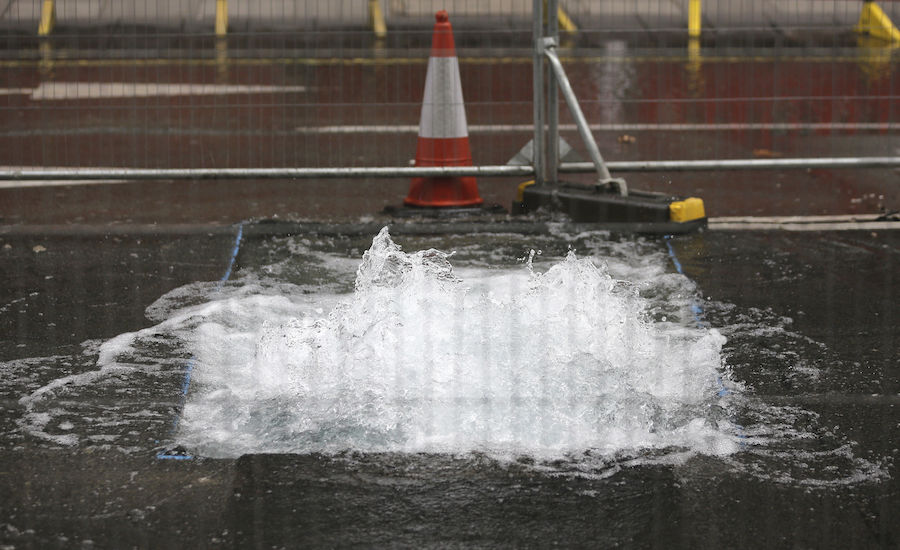After struggling through the pandemic in 2020, and reducing staff, Mott MacDonald’s UK-based design-build business, JN Bentley, has put out the help wanted sign as it prepares for more work on a $410-million construction program for Thames Water, a major British utility company.
COVID 19-related complications are by no means finished for the company, which provides engineering and construction services to the UK water and wastewater sector. In July, it reported that its sites, many involving water projects classed as critical, remained operational during UK lockdowns. Despite Britain's removal in July of many legal restrictions on social contact, some remain, such as the number of people allowed at one time in an office.
The majority of JN Bentley's regional offices are open.
Last month, however, the unit announced that it is seeking to add staff as its first project for Thames Water begins. The company says it needs to hire various electrical and mechanical engineers and an estimator, planner and BIM manager, among others. In addition, the company has posted job openings for site engineers, Structured Query Language programming code developers and equipment operators.
JN Bentley, a distinct entity within employee-owned Mott MacDonald with its own managing director and annual review, had partnered with Mott MacDonald on various projects for 15 years and was acquired in 2014 along with Bentley Holdings Ltd. About 1,500 people are employed at Mott MacDonald Bentley (MMB), its environmental design-build business, Jeremy Benn Associates-Bentley (JBA-B) and at JN Bentley.
JN Bentley undertook a “headcount reduction” last year that reduced its workforce by 15%, wrote Jonathan Rhodes, finance director, in the company’s annual review for 2020. Payroll dropped by $3.3 million to $86.5 million, according to a separate company filing to UK regulators.
The downsizing came as JN Bentley grappled with an 11% drop in revenue, to $412 million, from $464 million in 2019.
An 'atypically high level of underperforming contracts' was among the reasons behind the company's 2020 problems.
—JN Bentley's Annual Review for 2020
The company also cut staff pay for three months, with a drop in workload resulting in “much less overtime for weekly paid employees,” reduced bonus payouts, and cut back on training. In addition, JN Bentley closed 15 sites during spring 2020, with staff transition to remote work arrangements, according to the regulatory filing.
“All of the above … have been difficult choices for the management team but they were necessary to ensure we were able to avoid making a loss over the past year,” Rhodes wrote.
Part of the drop in revenue stemmed from investment plans for the next five years that UK water and wastewater companies had filed with the Water Services Regulation Authority, the government regulator overseeing the industry, which was privatized more than three decades ago.
Much like state utility regulators in the U.S., the authority every five years reviews investment and rate plans submitted by sector companies, setting the prices they can charge based on a number of factors.
A number of the companies, unsatisfied with the prices or other conditions the authority set in its review, had filed appeals with the UK Competition and Markets Authority, which delayed investment decisions on potential projects.
JN Bentley's portfolio of projects in the sector ranges from building reservoirs and a sludge treatment plant to a several-mile-long water pipeline.
Major disruptions to the UK economy and work life caused by the pandemic also played a role, with some clients not "willing to accept these costs,” Rhodes wrote.
2020 Profit Margins Fell 50%
With one exception, spending on projects and other work among JN Bentley’s clients in the sector fell 20% to 30%. The company profit margin fell by more than half, to .6% from 1.3% in 2019.
In addition to a lull in demand and COVID-19, the contractor said it was also dealing with “an atypically high level of underperforming contracts” at United Utilities and Severn Trent Water and a “cautious position” taken on water industry projects from a previous round of investments that are now being finished up. JN Bentley worked on these projects as part of an alliance with other industry contractors, but there were cost overrun issues on the work.
“We were left with no choice but to undertake a right-sizing activity to help safeguard the future of the organization,” Paul Bentley, the firm’s managing director, wrote in the annual report. “I am always sorry to see people go and I genuinely wish them all well for the future.”
This story was corrected Sept. 21 to state the JN Bentley revenue in millions of dollars. It had been stated in billions.







Post a comment to this article
Report Abusive Comment